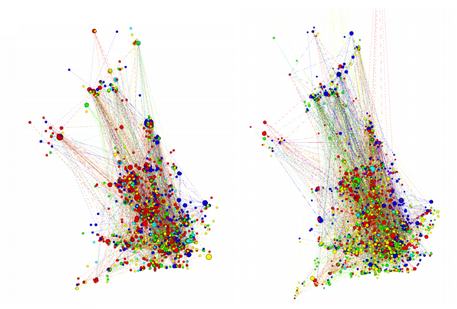Power, business, society in the regions: the wrong triangle The latest trends in regional political life are characterized by a reduction in the number of regional deputies
Carnegie Europe – Carnegie Endowment for International Peace
Recent trends in regional political life are characterized by a reduction in the number of deputies of regional parliaments, their deprofessionalization, the orientation of appointed politicians not to support the population, but to be loyal to those who make decisions on appointment to regional power structures. This was discussed at the Carnegie Moscow Center at the presentation of the book Power, Business, Society in the Regions: An Irregular Triangle, published under the editorship of Nikolai Petrov and Alexei Titkov.
The host of the event was Nikolai Petrov, Chairman of the Society and Regional Policy Program at the Carnegie Moscow Center. Alexey Titkov (State University – Higher School of Economics), Leonid Smirnyagin (Moscow State University), Alexander Kynev (Information Policy Development Foundation) took part in the discussion.
Characteristics of the book
The book Power, Business, Society in the Regions: The Wrong Triangle was prepared following the results of the first stage of a new large-scale project of the Carnegie Moscow Center for a comprehensive study of the relationship between society, government and business in the regions of Russia. The work touches upon the social, political and economic well-being of the regions (Irkutsk, Murmansk, Orenburg and Astrakhan regions) before the 2008 crisis.
L. Smirnyagin noted the following advantages of the book:
- a huge factual material collected by the field is presented;
- the authors of many articles are regional political scientists who own material inaccessible to Moscow experts;
- detailed and truthful portraits of regions are given;
- there are numerous striking findings.
However, for greater representativeness, according to L. Smirnyagin, it would be possible to highlight the state of affairs not only in the oil and gas regions, although a very diverse picture is formed based on the analysis of these four regions. Also, according to L. Smirnyagin, it would be better to prescribe communication between government, business and society in a tripartite format, and not just pairwise relations between these peaks – government and business, government and society, society and business.

Changes in the role of regional parliaments
The participants of the event noted that changes have taken place in the regional political life since the time of the study. Thus, in the regions chosen for the study and presented in the book, parliaments are traditionally strong. However, at present, according to A.Kyneva, weakening of the legislative power occurs.
- Reduction of numbers. By the end of the 2000s, a decrease in the number of deputies in regional parliaments began to be observed.
- Drofessionalization of parliaments. Over the past two years after each election, the number of deputies working on a professional basis has been reduced. As a result, deputies, not having time to work with materials, are forced to rely on the documents that the administration officials are preparing.
- Increase in the rotation of speakers. In the March 2010 elections, in eight regions in which elections to regional parliaments were held, five speakers changed. Most often, the Parliament speaker is occupied by either the Deputy Governor or the Secretary of the Regional Political Council of United Russia, appointed the day before.
Changes in the regional executive branch
Since the study that was reflected in the book, there have also been changes in the regional executive branch.
- Replacing administrations of heads of region with government It happens more and more often. The post of head of government is introduced, separate from the governor. However, these governments do not depend on regional parliaments and do not give the parliaments additional influence.
- The rooting of the new breed of the governors. As A. Titkov noted, if earlier, before the cancellation of the governor’s elections, the support of the people was important for the heads of regions and they sought to please the population, now the governors are guided by those who appointed them. Locals receive a minimum number of goods sufficient to not go outside, but no more.
Relations of regional authorities with representatives of federal authorities in the regions
N. Petrov said that recently a tendency to lose contact of the heads of regional representative offices of the federal authorities with the regional political elite is noticeable. If earlier only the regional head of the FSB was not related to the region, now the heads of the Ministry of Internal Affairs, the prosecutor's office, the main federal inspectors come to the regions from the side.

